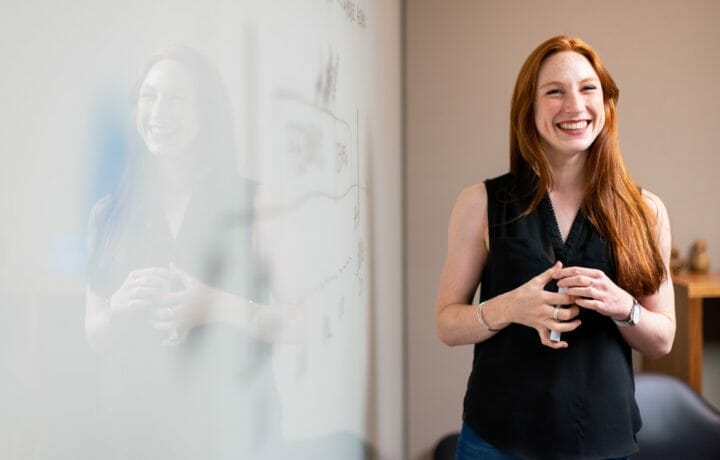Former policy analyst Lauren Bean Buitta launched Girl Security—a non-profit organization dedicated to training and mentoring young women interested in national security careers—in 2016, after seeing how girls are uniquely impacted by national security, and recognizing a need for their intentional engagement in the industry. Today, the nonprofit offers programming, training, and mentorship opportunities for girls in middle school and high school. And it’s also part of a larger movement to get more women into national security jobs. ClearanceJobs sat down with Buitta to talk about that movement, and why it—and Girl Security—are so important.
There’s a movement to increase women’s contributions in national security. How do you see this it playing out?
Buitta: I think naming something has tremendous impact. It brings together the various actors and missions. What is happening now with respect to women in national security is a social movement. The public is becoming more aware of the lack of diversity, equity, and inclusion in national security and the raising of this awareness by stakeholders and advocates is giving rise to ideas, more groups, policies, and other efforts to create change.
Who are the key players in this movement?
Buitta: The key players represent many facets of national security and include citizen-sector non-profits like Girl Security, industry, government, academia, and STEM. But importantly, the key stakeholders are citizens who must adapt to policies, laws, and decisions made in the name of national security as well as responsive strategies to the various national security threats by a community that doesn’t look very much like them and may not share the same values or understanding as them.
How is Girl Security participating in this movement?
Buitta: For Girl Security, we want all girls—from diverse backgrounds across the country—to be empowered to engage in discourse about national security, because it affects their personal security. We also want to see a more representative national security workforce that reflects the security experiences and insights of the country it is securing. By modeling STEM programming that reaches back to middle and high school girls at this critical moment in time when they are on the frontlines, we are setting the foundation for improved metrics. But numbers alone won’t create the type of enduring advances all of us seek. Changing culture takes time.
Why is this movement necessary?
Buitta: I think of something climate scientist Katherine Hayhoe said about how to talk to someone who doesn’t believe in climate change, and I subscribe to this and this underlies a lot of Girl Security’s work: Starting a conversation about a problem is one of the most important things to do. So, on the one hand, we’re starting the conversation, raising awareness, but on the other hand, we’re doing something about it. We won’t see the type of DEI [diversity, equity, and inclusion] that we seek without this set of efforts.
What progress has been made to increase women’s contributions in national security? And what additional progress needs to be made?
Buitta: At Girl Security, we measure progress by the extent to which girls feel more empowered to engage in a discussion about any national security topic in the news. We make progress when a girl sees herself in this space and enters our mentee network seeking information and support. We make progress when a woman pursues a career. We will make greater progress when critical barriers like a hostile culture or inflexible career policies ensure women can advance to leadership-decision maker positions. We will make progress when women in national security aren’t depicted as anomalies.
What’s men’s place in this movement? How can they help?
Buitta: Men, as the majority of the field, are critical players and stakeholders. Speaking from our experience with Girl Security, we have received critical support from important male allies. In any field in which women are under-represented and where men remain the majority, men can and must play a critical part in moving the conversation forward and leading policy efforts across sectors in concert with women and other groups.
What else do people need to know?
Buitta: Women are only one group underrepresented in national security: Women of color, men of color, LGBTQ+ are also underrepresented, and there are groups leading critical efforts on this front.




